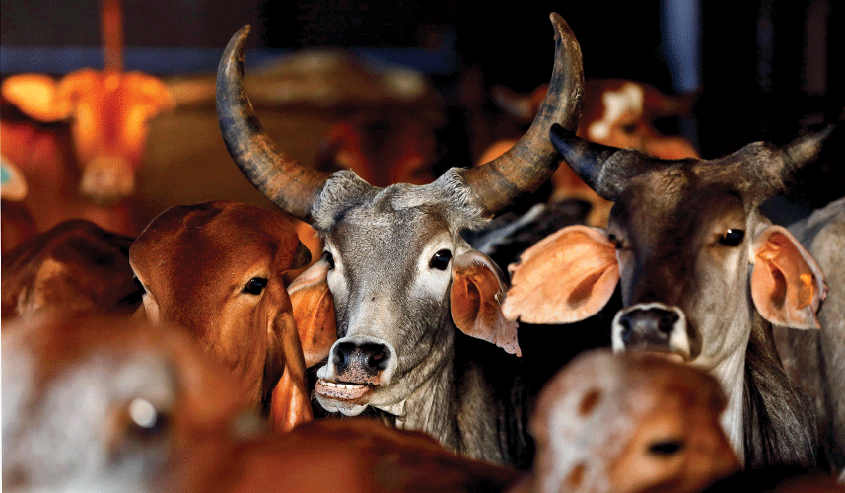 When the apocalypse that you prophesised with supreme confidence does not arrive, when the doomsday scenario that you presaged proves to be a fantastic illusion and when the prognostication of an imploding nation racked with communal discord falters, what do you do? How do you restore your sagging credibility and salvage your bruised and battered ego?
When the apocalypse that you prophesised with supreme confidence does not arrive, when the doomsday scenario that you presaged proves to be a fantastic illusion and when the prognostication of an imploding nation racked with communal discord falters, what do you do? How do you restore your sagging credibility and salvage your bruised and battered ego?
Simple. Pick up the currently prevailing criminal aberrations of society, give them an ideological spin, blow them out of proportion by flooding newspapers simultaneously to imply that the country is descending into unimaginable and widespread pandemonium, to stoke public concerns. This is precisely the modus operandi being adopted by the detractors of the current government who find themselves becoming increasingly irrelevant in a country that has seen through their deceptive shenanigans and has little patience for their endless skulduggery.
The “beef eating” controversy is the new media frenzy that is being orchestrated by vested interests to wrongly implicate the BJP government and is reminiscent of the false anti-Christian acts highlighted by the media when the BJP first came to power in 1996: subsequent scrutiny revealed that anti-Christian vandalism was a deliberate fabrication to malign the BJP.
Reading the op-eds and editorials in recent days would lead one to believe that India has overnight morphed into a vicious cauldron of religious hatred with bloodthirsty cow vigilantes running amok in every town and village in the country, hacking people to death. A veteran columnist of a major newspaper declares: “Violence is the mood of the new India and the armed men who wander our highways in search of Muslims to kill are today’s heroes.”
Do a few isolated incidents occurring in four to five remote towns in a country of 1.3 billion, spread out over 7,935 urban units (cities and towns) and 640,867 villages define “the mood” of an entire nation? This statement is a classic example of unadulterated hyperbole.
In another article provocatively titled, “Why the BJP has no incentive to stop the lynching of Muslims in India” another columnist pontificates: “There is no doubt that a form of medieval madness has taken over India in the shape of Islamophobia and regular lynching of Muslims…The lynchings have become so common that we do not know which one to respond to. Should we weep for Mohammad Naeem in Jharkhand or Hafiz Junaid in Haryana? How many remember the details of Pehlu Khan’s murder in Rajasthan? Mohammad Akhlaq is now just another milestone in this steady journey of wanton death.”
But is India truly in the grip of rampant Islamophobia and are “regular lynching of Muslims” a reality?
Let us objectively examine the four incidents mentioned above. The first “beef” related incident occurred on 28 September 2015 in Dadri, Uttar Pradesh in which Mohammed Akhlaq was lynched. One and a half years later (1 April 2017), Pehlu Khan, an alleged cattle smuggler, was killed on the Delhi-Alwar highway. On 18 May, Mohammed Naeem became the victim of an irate mob in Jharkhand and Hafeez Junaid was killed on a train on 22 June.
Can all these incidents be classified as iron clad instances of Islamophobia?
Mohammed Naeem was killed not because of “beef eating”, nor because he was a Muslim. He was one of seven individuals, including three Hindus, killed in Jharkhand by tribals on charges of child abduction. The Hafeez Junaid incident was primarily a case of seat altercation that deteriorated into a fatal communal fracas. In at least two of the four incidents, the charge of Islamophobia appears to be a fluid one; a far- fetched extrapolation that does not hold water. When we disregard the last two cases, even the assertion of “regular lynching of Muslims” becomes questionable.
While I do agree that even one lynching cannot be condoned in a civilised democracy, we need to appreciate that we live in an imperfect world, not a utopia; we need to view things in the right perspective sans sensationalism, rumour mongering and alarmism, and without the baggage of ideological wrangling and petty politicking.
Such self- serving attitudes take away from our efforts to tackle the menace of mob violence, which is the bane of our society and not exclusive to one community or the other.
Vivek Gumaste is a US based academic and political commentator.

